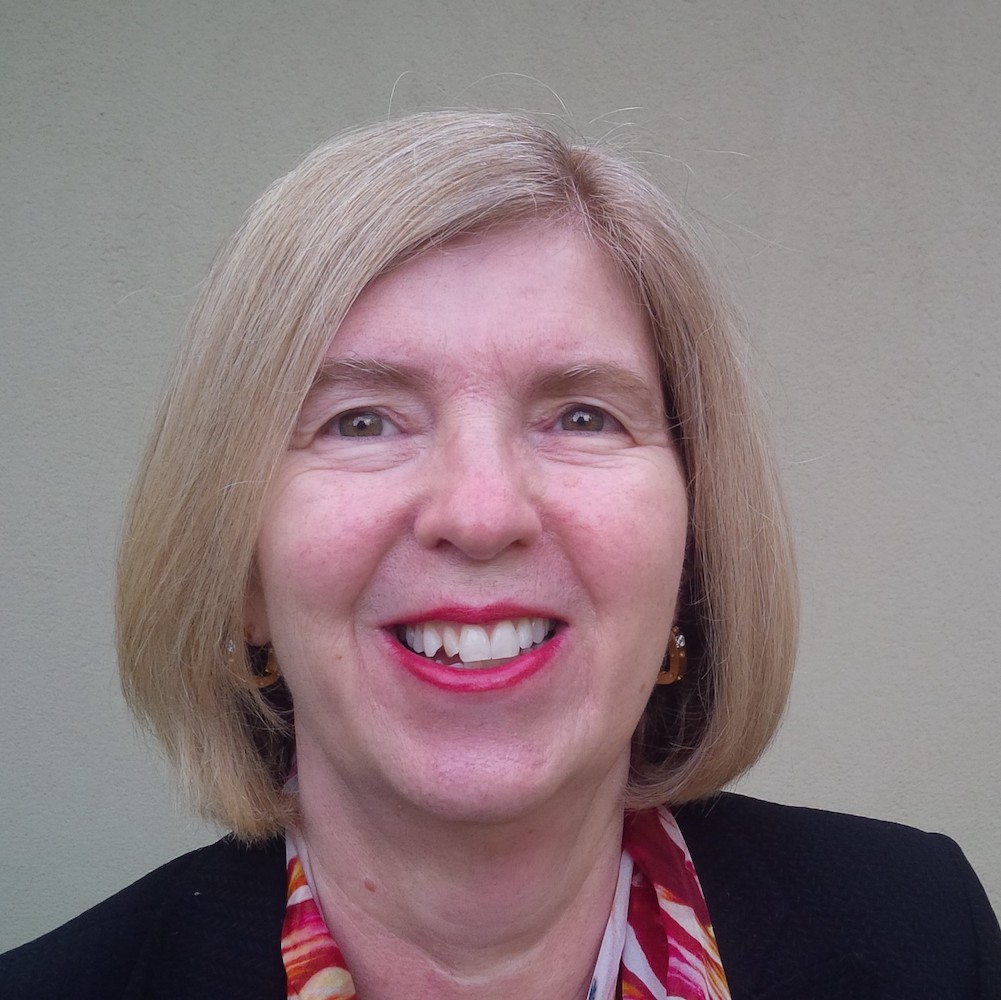
Prof. Anne Bassett
Psychiatrist
Toronto, Canada
“The patient’s needs always come first.”
Personal Statement
Dr. Anne Bassett, MD, FRCPC
Soon after I moved to Toronto from New York in 1989, doctors in Toronto started referring adult patients with 22q11.2DS (under the previous clinical names) because they knew I was interested in both genetics and in adults with serious psychiatric illness.
Bio
Dr. Anne Bassett, CM, MD, FRCPC
Psychiatrist
Medical Director, International 22q11.2 Foundation
22q11.2 Society, Founding Trustee and Treasurer
Director, The Dalglish Family 22q Clinic, Toronto General Hospital
Director, Clinical Genetics Research Program, Centre for Addiction & Mental Health
Professor of Psychiatry, University of Toronto
Toronto, ON, Canada
Dr. Anne Bassett is the Director of the Dalglish Family 22q Clinic at the Toronto General Hospital and the Dalglish Chair in 22q11.2 Deletion Syndrome. A Professor at the University of Toronto and Director of the Clinical Genetics Research Program at the Centre for Addiction and Mental Health, she is a world-renowned expert in adults with 22q11.2 deletions and in the genetics of complex conditions.
Dr. Bassett is the Medical Director for the International 22q11.2 Foundation, and a Founding Member of the 22q11.2 Society. She is a leader in international studies of, and in developing international clinical practice guidelines for, 22q11.2 deletion syndrome. Dr. Bassett has been providing exemplary care to adults with 22q, and their families and caregivers, for over 25 years.
Significant Research Contributions
Please visit the Research section of the Dalglish Family 22q Clinic website.
Awards
2023 – Appointed as a Member of the Order of Canada
2020 – The Lieber Prize for Outstanding Achievement in Schizophrenia Research from the Brain and Behavior Research Foundation
2014 – The Angelo DiGeorge Medal of Honour from the 22q11.2 Society
Videos
2014
Long-term Psychiatric Management and Anticipatory Care – Adult Management Guidelines (The 9th Biennial International 22q11.2 Deletion Syndrome Meeting)
Anne Bassett
https://www.youtube.com/watch?v=6z4tb0K1ecY
2013
Anne Bassett – Ted Med
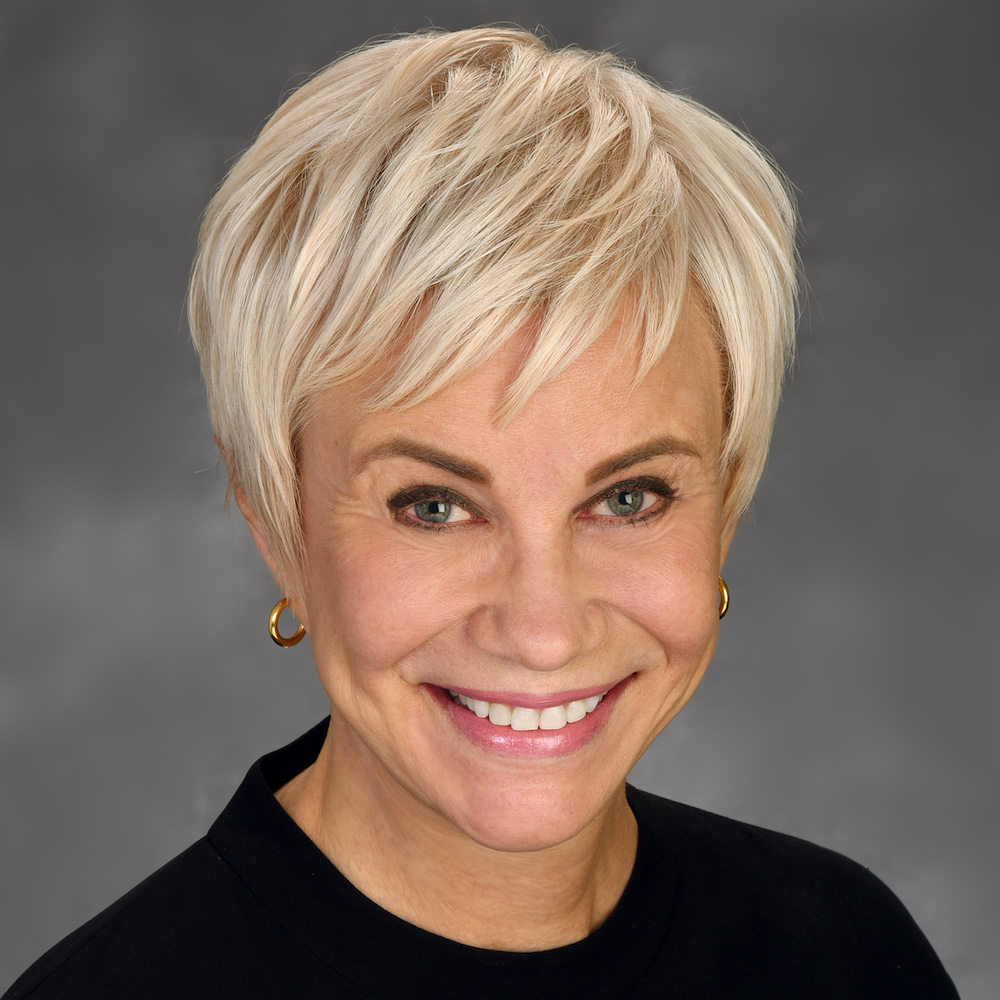
Dr. Patricia H. Beals
Craniofacial Orthodontist
Phoenix, USA
“Walk by faith, not by sight.”
Personal Statement
Dr. Patricia H. Beals
It is my honor to care for people with 22q11.2 deletion syndrome with a whole-patient perspective.
Bio
Dr. Patricia H. Beals
Craniofacial Orthodontics
Barrow Neurological Institute
Phoenix, Arizona
Patricia Beals, DMD practices as a craniofacial orthodontist in Phoenix, AZ where she serves as co-medical director of the Barrow Cleft and Craniofacial Center. She is one of the founding members of the Phoenix Children’s Hospital 22q Center of Excellence and is the Immediate Past President of the American Cleft Palate and Craniofacial Association.
Patricia is unwavering in her belief that the interdisciplinary approach to cleft and craniofacial care, which involves the family, produces the best possible result.
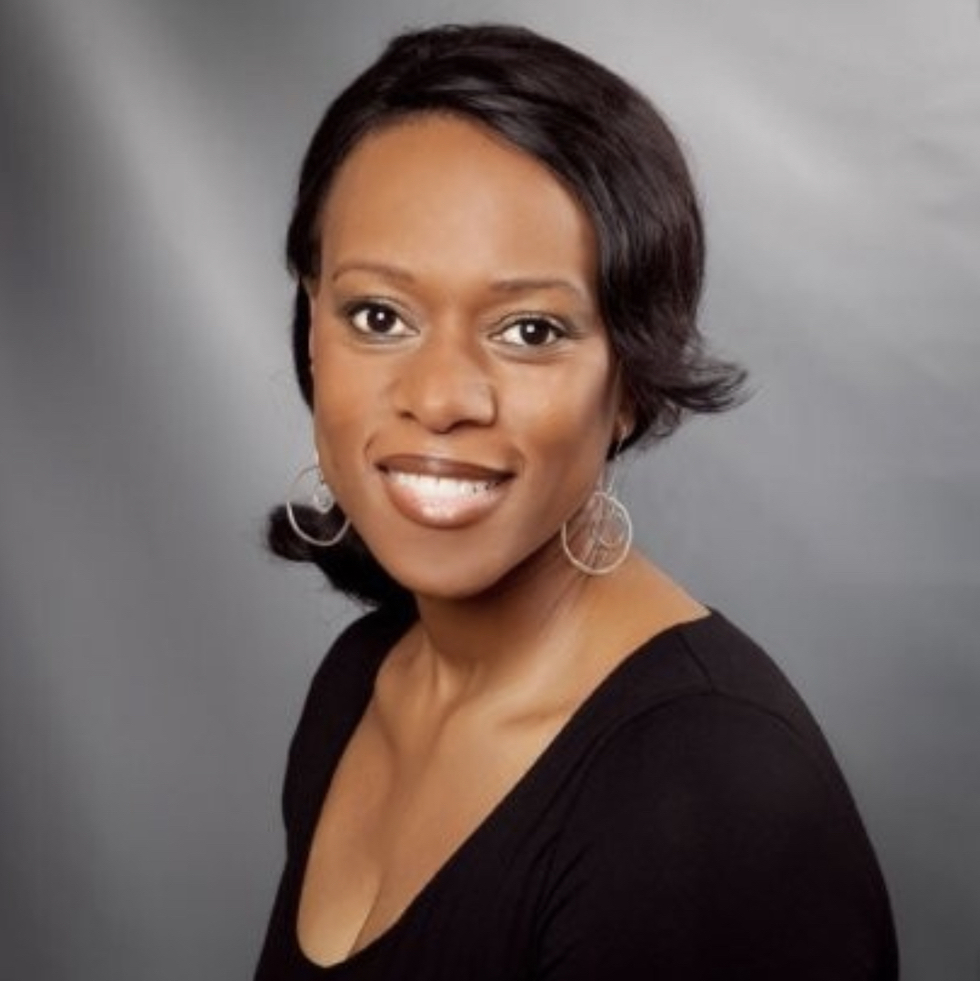
Dr. Madeline A. Chadehumbe
Pediatric Neurologist
Philadelphia, USA
“I will stay in the moment and savor it because the future will be waiting for me to face it then.”
Personal Statement
Dr. Madeline A. Chadehumbe
I have a passion to develop and grow the neurological knowledge base, research, and clinical treatments of children and adults with 22q11.2 deletion syndrome. Being part of the larger 22q and You Center at Children’s Hospital of Philadelphia (CHOP) under the leadership of Donna McDonald-Mcginn and Dr. Elaine Zackai has brought much satisfaction to my personal and professional career. I am delighted to serve on this Board and hope to see more lives touched by this wonderful organization. I also hope to raise awareness amongst underrepresented and disadvantaged families who still have a small representation through this community.
Bio
Dr. Madeline A. Chadehumbe
Pediatric Neurologist
Division of Neurology at Children’s Hospital of Philadelphia
Philadelphia, Pennsylvania
Dr. Madeline Chadehumbe is an Associate Professor of Neurology and Pediatrics at the University of Pennsylvania and serves children and adults at the Children’s Hospital of Philadelphia. She has been treating children at the 22q and You Center for the last 5 years and has been an integral part of treating the neurological, developmental, behavioral, and learning needs in this group.
Dr. Chadehumbe went to medical school at the University of Zimbabwe, prior to completing her pediatric residency at Michigan State University and her child neurology residency at University of Cincinnati. She also held neurology-related positions at these universities and at All Children’s Hospital at Johns Hopkins Medicine.
Dr. Chadehumbe has published literature about the unique neurological attributes in this group. She has a passion to learn more about the etiology, pathogenesis, and treatment options for these families. She has dedicated her career to further research and understanding of this condition’s neurological attributes.
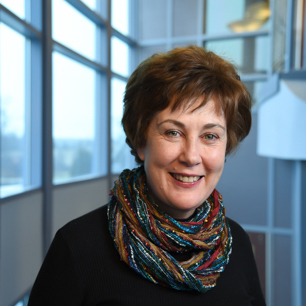
Prof. Brenda Finucane
Genetic Counselor
Lewisburg, USA
Personal Statement
Prof. Brenda Finucane, MS, LGC
My interest in 22q goes back over 20 years, from my initial involvement as an International 22q Foundation board member, to my current research at Geisinger on neurodevelopmental and psychiatric outcomes in people with 22q11.2 deletions and duplications.
Bio
Prof. Brenda Finucane, MS, LGC
Genetic Counselor
Geisinger Health System
Autism & Developmental Medicine Institute
Lewisburg, USA
Brenda Finucane, MS, LGC, is a licensed genetic counselor and professor at Geisinger’s Autism & Developmental Medicine Institute in Lewisburg, PA. For over 30 years, her clinical and research activities have focused on genetic causes of neurodevelopmental and psychiatric disorders. Ms. Finucane has a particular interest in genetic conditions that result in complex intellectual, behavioral, and neurological symptoms, including fragile X, dup15q, Smith-Magenis, 22q11.2 deletion, and other well-known syndromes. Her clinical experience with these populations includes young children through adults, with a focus on translating clinical research findings into practical services that address the educational, behavioral, and health needs of people with genetic conditions.
A current area of inquiry since joining Geisinger in 2013 is the impact of family genetic background on variability of symptom expression in individuals with rare genetic disorders. Advances in our understanding of the influence of family genetic background on learning and behavioral symptoms may someday improve our ability to provide more accurate prognoses and targeted interventions. Ms. Finucane has a lengthy track record of publications on a wide range of topics related to genetic testing and counseling for developmental brain disorders. She has served in leadership roles in professional and advocacy organizations throughout her career, including a term as president of the National Society of Genetic Counselors.
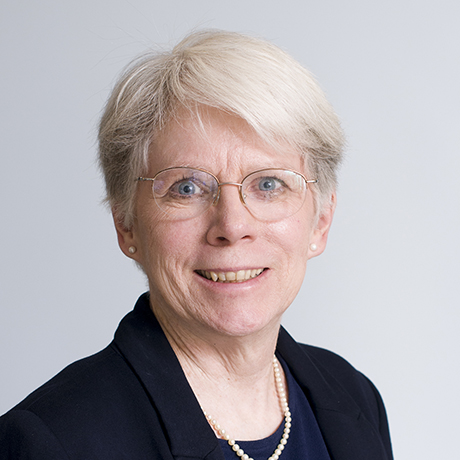
Dr. Paula Goldenberg
Clinical Geneticist and Parent
Boston, USA
Personal Statement
Dr. Paula Goldenberg
It is my honor to care for people with 22q11.2 deletion syndrome with a whole-patient perspective.
Bio
Dr. Paula Goldenberg
Clinical Geneticist, Pediatrician and Parent
Director, Massachusetts General Hospital for Children Center for Chromosome 22
Boston, Massachusetts
Dr. Paula Goldenberg, Director of the MGH Center for Chromosome 22, is a pediatrician, geneticist, and parent of a son with 22q11.2 deletion syndrome, who is now an independent adult. She was a psychiatric social worker (MSW) treating children and families. She went to medical school after her son was diagnosed with DiGeorge syndrome. Following completion of medical school she completed residency in pediatrics and genetics at Duke University Medical Center. She then had post-doctoral training at CHOP with the UPenn Brain-Behavior Unit with a Masters Degree in Clinical Epidemiology at the UPenn School of Medicine.
Dr. Goldenberg has started three different clinics for patients with chromosome 22q11 deletion (Duke, Cincinnati Children’s Heart Institute, and MGH) and participated in the development of healthcare guidelines for people with 22q11.2 deletion syndrome. Dr. Goldenberg cares for children, adolescent, and adult patients with 22q11.2 deletion syndrome, as well as other conditions of chromosome 22. She has reached a global audience on Facebook with nearly 8,000 followers of her MGH 22q11 Clinic site, as well as a Twitter feed.
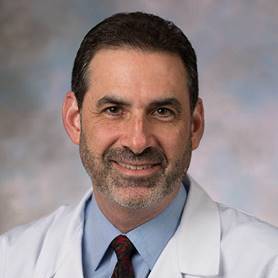
Prof. Richard Kirschner
Pediatric Plastic Surgeon
Columbus, USA
“Fairy tales do not tell children the dragons exist. Children already know that dragons exist. Fairy tales tell children that dragons can be beaten.”
– G.K. Chesterton
Personal Statement
Dr. Richard Kirschner, MD, FACS, FAAP
My service to children with 22q11.2 deletion syndrome and their families has been and will always be dedicated to ensuring that all can achieve their best quality of life in a world of understanding and acceptance.
Bio
Dr. Richard Kirschner, MD, FACS, FAAP
Pediatric Plastic Surgeon
Co-Director, The 22q Center, Nationwide Children’s Hospital
Professor of Surgery, Ohio State University College of Medicine
Columbus, Ohio
Richard E. Kirschner, MD, FACS, FAAP is a pediatric plastic surgeon with over 20 years’ experience in caring for children with 22q11.2 deletion syndrome.
Dr. Kirschner received his medical degree from the University of Miami. He subsequently completed a residency in general surgery with research distinction at the New York Hospital-Cornell Medical Center and a residency in plastic and reconstructive surgery at the University of Pennsylvania. He completed a fellowship in pediatric plastic surgery at The Children’s Hospital of Philadelphia, where he remained as Director of the Craniofacial Biology Laboratory and later served as Director of the Cleft Palate Program. Dr. Kirschner now serves as the Robert and Edgar T. Wolfe Foundation Endowed Chair in Plastic and Reconstructive Surgery, Chief of the Department of Plastic and Reconstructive Surgery, Director of the Cleft Lip and Palate Center, and Co-Director of the 22q Center at Nationwide Children’s Hospital in Columbus, Ohio and as Professor of Surgery in the Department of Plastic Surgery at The Ohio State University College of Medicine.
Dedicated to the service of patients, families and professionals, Dr. Kirschner has educated and trained physicians, surgeons, and other healthcare professionals from across the US and around the world and has cared for underserved children in Central and South America. He has lectured across the globe on the principles of cleft lip and palate surgery, 22q11.2 deletion syndrome, and multidisciplinary team care. He has served as President of the American Cleft Palate-Craniofacial Association and is the co-editor of Comprehensive Cleft Care, the family edition of Comprehensive Cleft Care, and the soon-to-be-published Cleft Palate and Velopharyngeal Dysfunction. He is President and Co-Founder of the Magical Moments Foundation, a nonprofit organization that works to renew a sense of hope, joy, wonder, and empowerment in children with facial differences through magical adventures and experiences.
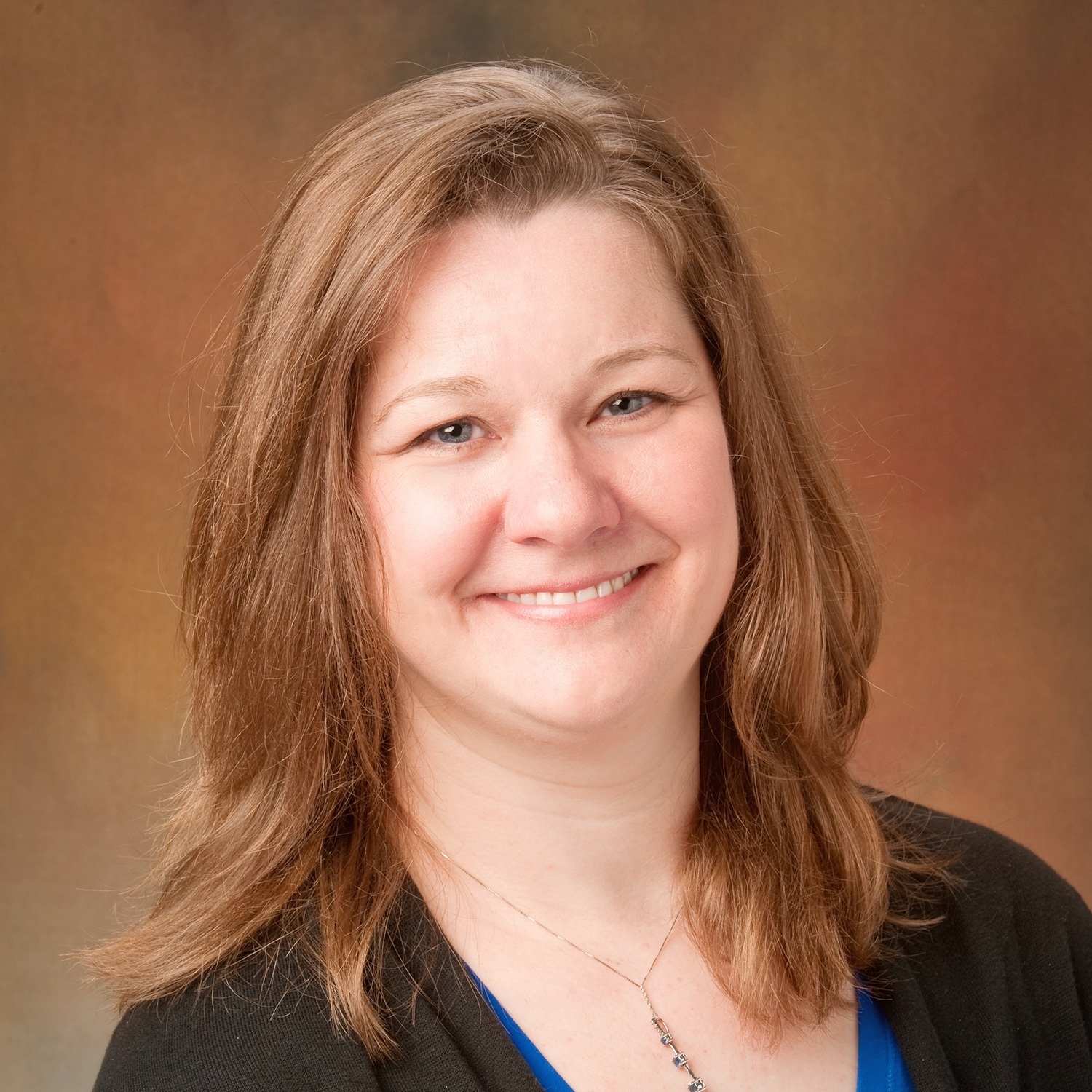
Dr. Michele Lambert
Pediatric Hematologist
Philadelphia, USA
“The person who removes a mountain begins by carrying away small stones.”
Personal Statement
Dr. Michele Lambert, MD, MSTR
My work in 22q11.2 started with the association with thrombocytopenia and immune thrombocytopenia, and I have found my collaborations with the 22q community scientifically and my interactions with the patients and families to be extremely rewarding.
Bio
Dr. Michele Lambert, MD, MSTR
Pediatric Hematologist
Children’s Hospital of Philadelphia
Philadelphia, Pennsylvania
Dr. Lambert received her undergraduate degree in Biology from Rensselaer Polytechnic Institute and attended medical school at Rutgers New Jersey Medical School. She did her residency in Pediatrics at St. Christopher’s Hospital for Children followed by a year as Chief Resident and then a Hematology/Oncology Fellowship at The Children’s Hospital of Philadelphia. She is now an Associate Professor of Pediatrics in The Perelman School of Medicine at the UPENN and a Pediatric Hematologist at the Children’s Hospital of Philadelphia where she is the clinical director of the special coagulation laboratory and associate clinical director of the Frontier Program in Immune Dysregulation. Her particular clinical interest is in the inherited and acquired platelet disorders and in the interplay between genetics and disease.
Her current research focuses on understanding the role of genetics in this space. She is a member of the ClinGen Hemostasis and Thrombosis clinical domain working group and a Co-Chair of the ClinGen Hemostasis and Thrombosis Hemostasis and Thrombosis Gene Curation Expert Panel as well as the current Chair of the pediatric ITP Consortium of North America. By understanding the drivers of differences in biology in platelet disorders, Dr. Lambert hopes to develop targeted therapies to improve outcomes.
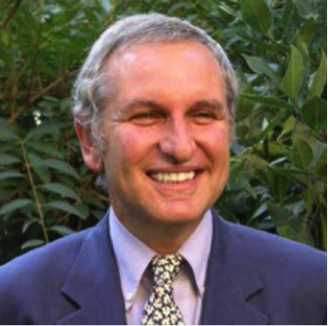
Prof. Bruno Marino
Pediatric Cardiologist
Rome, Italy
Personal Statement
Dr. Bruno Marino, MD
Morphological and embryological training related to complex congenital heart disease led me toward an interest in cardiac defects associated with extracardiac anomalies and genetic syndromes. The challenge of understanding and treating some of the most complex congenital malformations is what drew me to studying congenital heart disease in persons with 22q11.2.
My scientific aptitude for complexity was compounded by the hope of improving lives of children affected by diseases that appeared too severe to cure.
I started being interested in cardiac defects associated with DiGeorge syndrome in the mid ‘80s, after having focused much of my research effort on Down syndrome.
Bio
Dr. Bruno Marino, MD
Pediatric Cardiologist
Professor of Pediatrics
“Sapienza” University of Rome, Policlinico Hospital
22q11.2 Society, Founding Trustee and Emeritus Trustee
Rome, Italy
Professor Bruno Marino was born in Rome in 1954 and is married with two grown children.
He is currently Full Professor of Pediatrics, Director of the Division of Pediatric Cardiology and Director of the Department of Pediatrics, Obstetrics and Gynecology at “Sapienza” University of Rome, Policlinico Umberto I Hospital (Rome, Italy).
He graduated in 1978 and then specialized in Cardiology and Pediatrics. He carried out training in pathology and echocardiographic diagnosis of congenital heart disease at the University of Padua (Italy), University Hospital Ramon y Cajal of Madrid and Children’s Hospital of Boston.
He was Assistant Cardiologist at the Catholic University of Rome from 1980 to 1982, Pediatric Cardiologist at Bambino Gesù Hospital in Rome from 1982 to 2001 and Full Professor of Pediatrics at “Sapienza” University of Rome from 2001 to present.
In 2020 Professor Bruno Marino was honored with the Angelo DiGeorge Medal.
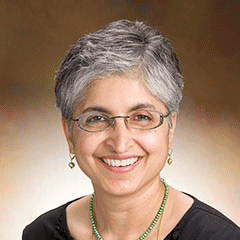
Prof. Maria Mascarenhas
Pediatric Gastroenterologist, Nutrition Pediatrician, and Integrative Health
Philadelphia, USA
Personal Statement
Dr. Maria Mascarenhas
I love working with children with 22q11.2 deletion syndrome and their parents. Initially when I first started working with a few patients and realized how little there was in the literature to help guide their GI care. Over the years I worked more and more with the 22q center at Children’s Hospital of Philadelphia (CHOP) and have had the honor and privilege to work with many families as we care for their children.
Bio
Dr. Maria Mascarenhas
Pediatric Gastroenterologist, Nutrition Pediatrician, and Integrative Health Lead
Children’s Hospital of Philadelphia
Professor of Pediatrics Perelman School of Medicine at the University of Pennsylvania
Philadelphia, Pennsylvania
Maria R. Mascarenhas, M.B.B.S., is a Pediatric Gastroenterologist in the Division of Gastroenterology, Hepatology and Nutrition at the Children’s Hospital of Philadelphia. She is a Professor of Pediatrics at the Perelman School of Medicine, University of Pennsylvania. She is currently the Section Chief of Nutrition in the Division of Gastroenterology and Nutrition, Medical Director of the Clinical Nutrition Department and Medical Director of the Integrative Health Program.
Dr. Mascarenhas received her medical degree from St John’s Medical College in India and completed her pediatric training at Downstate Medical Center in Brooklyn, NY and Texas Children’s Hospital in Houston, TX. She is board-certified in Pediatrics, Nutrition and Pediatric Gastroenterology. Dr. Mascarenhas is an experienced clinician, educator, and international speaker and is widely published. Her research areas include Cystic Fibrosis, Nutrition Support, 22q deletion syndrome and Integrative Medicine.
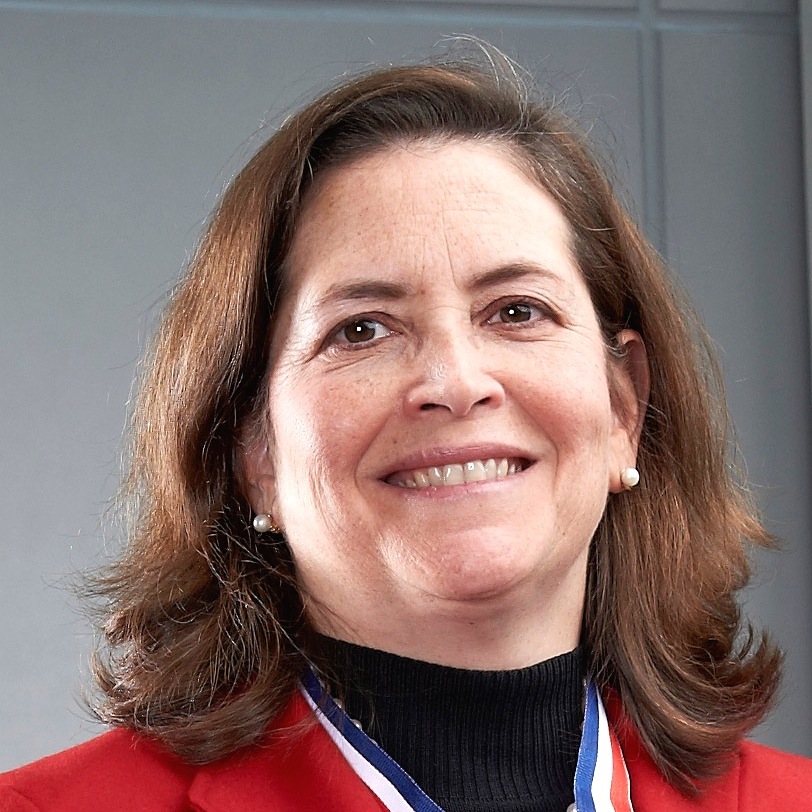
Prof. Donna McDonald-McGinn
Genetic Counselor
Philadelphia, USA
“It always begins with a patient”
Personal Statement
Prof. Donna McDonald-McGinn
I was very fortunate to begin working with children and families affected by chromosome 22q11.2 differences at the Children’s Hospital of Philadelphia (CHOP), when FISH studies were first developed at CHOP in 1992. Thereafter, as we began to amass expertise with these conditions, families started traveling to Philadelphia for care. Thus, launching the 22q and You Center at CHOP in the mid-1990’s was a necessity to support families both locally and from a distance. Concurrently, our dedicated subspecialists, representing >20 separate areas (e.g. Cardiology, Immunology, Palate Surgery, Endocrine, Feeding and Swallowing, Orthopedics, Speech, Education and Behavior, etc.) became experts in their respective areas. Simultaneously our reach grew nationally and internationally by providing state-of-the-art care while leading multiple basic science and clinical research initiatives. During this time, it became clear that families required information and emotional support, so I helped establish the International 22q11.2 Foundation in 2003 to fill these gaps. I am delighted to have remained on the Board of Directors all these years, supporting lots of rhyming events, most notably 22q at the Zoo – Worldwide Awareness Day which I coined in 2011, and leading innumerable educational conferences. In 2013, I also helped launch the 22q11.2 Society to bring basic scientists and healthcare providers together towards improving the lives of individuals with chromosome 22q11.2 differences and their families. No question, partnering with families to improve care locally and around the world has been the most rewarding aspect of my work.
Bio
Prof. Donna McDonald-McGinn
Genetic Counselor
Clinical Professor of Pediatrics at the Perelman School of Medicine of the University of Pennsylvania;
Director of the 22q and You Center, Chief of the Section of Genetic Counseling, and Associate Director of the Clinical Genetics Center at the Children’s Hospital of Philadelphia
22q11.2 Society, Founding Trustee, Founding Secretary and Chair
Philadelphia, Pennsylvania
Donna McDonald-McGinn, MS, CGC, is a Clinical Professor of Pediatrics at the Perelman School of Medicine of the University of Pennsylvania; Director of the 22q and You Center, Chief of the Section of Genetic Counseling, and Associate Director of the Clinical Genetics Center at the Children’s Hospital of Philadelphia.
Prof. McDonald-McGinn was born and raised in Philadelphia. She obtained her Bachelor of Arts Degrees in Biology and Sociology from Rosemont College, in Rosemont, PA and Master of Science in Human Genetics from Sarah Lawrence College, in Bronxville, NY. She arrived at the Children’s Hospital of Philadelphia as a Genetic Counseling student in 1983 hoping to shadow renowned dysmorphologist Elaine Zackai, MD, and never left – officially joining the Division of Human Genetics in 1985.
She began working on the chromosome 22q11.2 deletion syndrome following the development of a 22q11.2 specific FISH probe in the laboratory of Beverly Emanuel, PhD, in 1992. Shortly thereafter, she founded the 22q and You Center, a pioneering holistic care program for individuals and families affected by chromosome 22q11.2 differences, a program that remains to this day a trailblazer in the field. Prof. McDonald-McGinn has spent much of her professional career striving to support education, multidisciplinary care, and collaborative outcomes research involving the relationship of 22q11.2 deletion syndrome with associated birth defects, medical problems, cognitive deficits, and behavioral health. Within this area, she has published more than 300 manuscripts, chapters and reviews and led global cooperative initiatives including establishing chromosome 22q11.2 deletion syndrome specific pediatric and adult clinical practice guidelines. She is a regularly invited lecturer at national and international scientific and family meetings and academic institutes, as well as a much sought after webinar presenter. She is a perennial thesis advisor, teacher, and student mentor, endeavoring to inspire the next generation of chromosome 22q11.2 experts. She acts as principle investigator for several United States National Institute of Health research studies and privately funded programs.
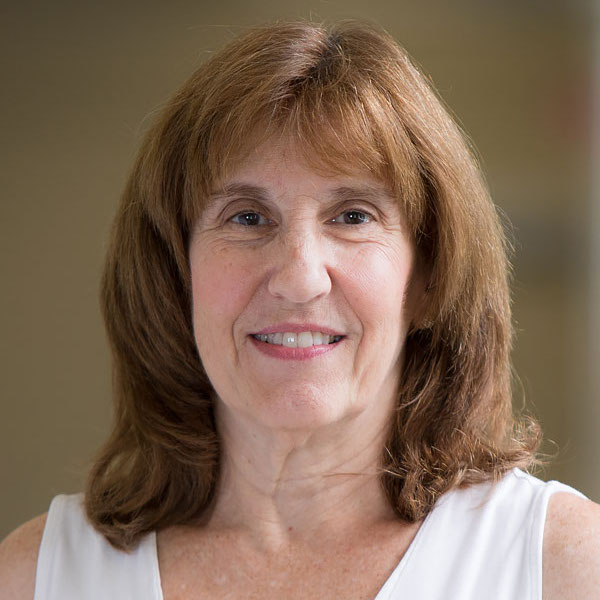
Prof. Bernice Morrow
Basic Science Geneticist
New York, USA
Personal Statement
Prof. Bernice Morrow, PhD
I started working on 22q when I was training because I met a patient in Montefiore Hospital that had 22q. The patient was the same age of my daughter and I became immediately connected to the disorder.
Bio
Prof. Bernice Morrow, PhD
Basic Science Geneticist
Professor of Genetics, Obstetrics & Gynecology and Women’s Health, and Pediatrics
Albert Einstein College of Medicine
22q11.2 Society, Trustee
Bronx, New York
Bernice Morrow is a Professor of Molecular Genetics, Obstetrics and Gynecology, as well as Pediatrics at the Albert Einstein College of Medicine in Bronx, NY. She is the college’s Director of the Division of Translational Genetics and the Olson Chair in Cardiology.
Professor Morrow’s research focusses on the molecular genetics of 22q11.2 deletion syndrome, examining how patients with the same syndrome can have different features and severities, focusing on congenital heart disease. Her lab is also interested in the mechanisms by which 22q11.2 genes function by studying mouse models. Together with her team, she has published over 125 research articles and is funded by the National Institutes of Health. She has trained over 30 investigators including PhD students and postdoctoral fellows.
For more information about Professor Morrow’s research, please visit her lab’s website and her faculty profile.
Professor Morrow received the Angelo DiGeorge Medal from the 22q11.2 Society in 2018.
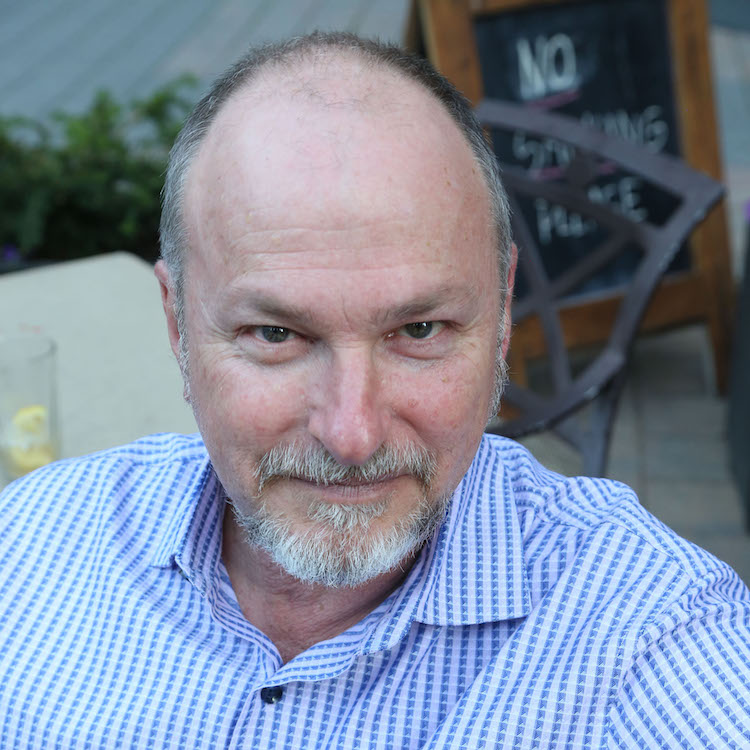
Dr. Edward Moss
Neuropsychologist
Bryn Mawr, USA
“Ad astra per aspera” [To the stars, through difficulty]!
Personal Statement
Dr. Edward Moss, PhD
Like most people, I had never heard of 22q until, in 1994, Dr. Elaine Zackai asked me to become involved in a new Genetics research project. I was indeed fortunate to be in the right place at the right time, to accept the invitation that has evolved into a truly life-changing odyssey. Through this work, I have been very fortunate to collaborate with dedicated colleagues around the world, and to get to know countless wonderful individuals affected by 22q, and their families.
Bio
Dr. Edward Moss, PhD
Neuropsychologist
Bryn Mawr, Pennsylvania
Dr. Edward Moss is a developmental neuropsychologist in private practice, and former founder and Director of Developmental Neuropsychology at The Children’s Hospital of Philadelphia (CHOP). Dr. Moss specializes in assessing the effects of genetic disorders on cognitive and emotional development, and since 1994 has been working with children and families affected by 22q11.2 deletions and duplications. Now that many of the children he follows have aged into young adulthood, he has turned his attention to their interests in continued academic pursuits, career planning, and increasing independent living skills.
https://www.jpeds.com/article/S0022-3476(99)70415-4/abstract

Dr. Sólveig Óskarsdóttir
Pediatrician
Goteborg, Sweden
Personal Statement
Dr. Sólveig Óskarsdóttir
I started working on the 22q11.2 deletion syndrome in the mid-nineties because I had a new group of patients with a ‟new syndrome” that caught my interest.
Bio
Dr. Sólveig Óskarsdóttir
Pediatrician
Queen Silvia Children’s Hospital
22q11.2 Society, Advisor
Goteborg, Sweden
Dr. Sólveig Óskarsdóttir graduated in Medicine at the University of Iceland in 1980. She moved to Gothenburg, Sweden 1984 and has been working at Queen Silvia Children’s Hospital/Sahlgrenska University Hospital since then. She became a specialist in pediatrics 1990.
Dr. Óskarsdóttir became part of the Rheumatology and Immunology team in the early 1990s. In her clinical work she became engaged in patients with 22q11 deletion syndrome, which was a new and emerging group at that time. In 1997, she set up a multidisciplinary specialist-team to evaluate the different aspects of the disorder systematically. This was the starting point for a research project, and she successfully defended her PhD thesis, ‟The 22q11 deletion syndrome. A Clinical and Epidemiological Study”, in 2005. The project resulted in several additional publications and two other PhD theses.
Another aim of Dr. Óskarsdóttir’s project was to disseminate information and increase knowledge about the syndrome among professionals and families. She contributed to the establishment of a family and patient organisation in 2000 and became a member of its board. She continues to be highly involved in education and distribution activities organised by the association.
Dr. Óskarsdóttir has been following children and adolescents with the 22q11 deletion syndrome for nearly 30 years and is the leader of the 22q11-expert team at Sahlgrenska University Hospital in Gothenburg, Sweden. Together with international colleagues, she participated in providing guidelines for management and follow-up of children with 22q11.2DS. Together with a group of professionals and parents, she is now developing national guidelines for Sweden.
Although Dr. Óskarsdóttir is officially retired, she still works part time, mostly on 22q11 deletion syndrome. She is currently involved in a research project which focusses on thymic function in patients with the syndrome. She also participates in an international multidisciplinary study together with many centres around the world.
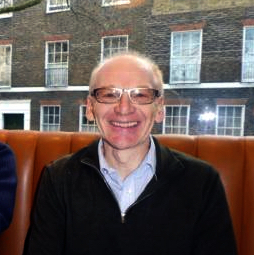
Prof. Peter Scambler
Basic Science Geneticist
London, United Kingdom
“The childish urge to understand everything doesn’t necessarily fade when the time approaches for you to do the most adult thing of all: vanish.”
Clive James
Personal Statement
Prof. Peter Scambler
I have to be honest, I somewhat stumbled into 22q11.2 through a serendipitous alignment of my searching for a new application for a chromosome transfer technique I had learned on the CF project. I came across “DiGeorge” syndrome and cat-eye syndrome at the Gt. Ormond St. clinic and the arrival of a scientist from the Karolinska who had a friend back in Stockholm who was busy putting 22q11 probes in the bin! This latter happenstance, I subsequently learned, saved me from an experiment doomed to failure. Such are the vagaries of fate.
Bio
Prof. Peter Scambler
Professor of Molecular Genetics
22q11.2 Society, Founding Trustee, Founding Chair and Vice-Treasurer
London, United Kingdom
Professor Peter Scambler qualified in Medicine at the University of Manchester, UK, in 1982.
Following internship he moved to St. Mary’s Hospital Medical School, London to join Professor Bob Williamson’s team on the cystic fibrosis (CF) genetics project where he stayed until the end of 1992. While failing to identify CFTR ahead of the North Americans, he developed an interest in congenital malformation syndromes, and began work on 22q11.2 Deletion Syndrome (previously DiGeorge syndrome) while still at St. Mary’s.
His group moved to the Institute of Child Health-UCL in 1993 and he was honorary consultant at the Gt. Ormond Street Hospital for Sick Children. The team’s work then expanded to study the genetic and developmental basis of several human birth defects with an emphasis on cardiovascular malformations.
Gradually, efforts have become more focussed on the developmental aspects of these diseases, with human genetics playing a subsidiary role. Professor Scambler was awarded a BUPA medical foundation special merit award in 1993, the British Paediatric Association Guthrie Medal in 1994, was elected to the Academy of Medical Sciences in 2001.
Peter Scambler was awarded the Angelo DiGeorge medal in 2010. He was a founder member and first chair of the 22q11.2 Society where he remains a trustee.
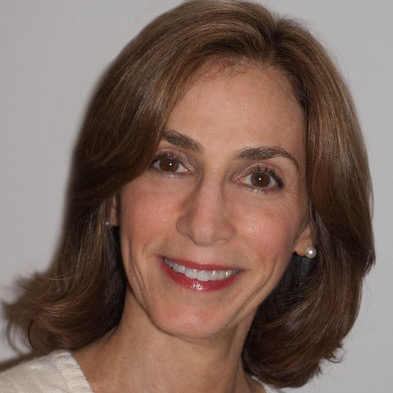
Cynthia Solot, MA, CCC-SLP
Speech-Language Pathology
Philadelphia, USA
Personal Statement
Ms. Cindy Solot, MA, CCC-SLP
I began working with the 22q11.2 population in CHOP’s early research endeavors and was fascinated by the unique and complex nature of the communication challenges in individuals with 22q, as well as the opportunity to work with an extraordinary group of professionals, locally and internationally. Even as we learn more and more about it, 22q continues to pose deeper questions to answer. It is an honor and a pleasure to work with the families in this population who continue to inspire me.
Bio
Ms. Cindy Solot, MA, CCC-SLP
Speech-Language Pathology
Children’s Hospital of Philadelphia
Philadelphia, Pennsylvania
Cindy Solot, MA, CCC is Senior Speech-Language Pathologist in the Center for Childhood Communication at the Children’s Hospital of Philadelphia (CHOP) where she has worked since 1976. She also serves as the lead speech-language pathologist in the 22q and You Center, the Cleft Palate Craniofacial Program, and is Co-Director of the Velopharyngeal Dysfunction Program.
Cindy Solot has participated in research projects in a variety of genetic and developmental conditions, in cleft lip and palate, and sequelae of infant cardiac surgery. In the early 1990s, she was fortunate to be part of the early research and clinical studies of 22q11.2DS conducted at CHOP. This led to ongoing participation in CHOP’s 22q and You Center, which has been a world leader in the field.
Education and collaboration in the dissemination of information on 22q11.2 Deletion Syndrome and its management has been a large focus of her work. She is the lead author of an international group responsible for the recently published Best Practices document for the diagnosis and management of speech and language disorders in 22q11.2 Deletion Syndrome.
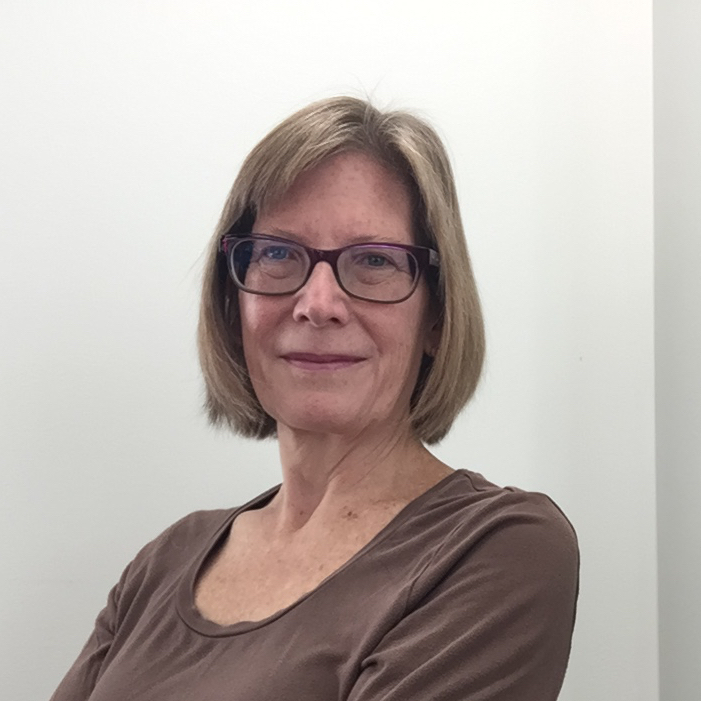
Prof. Kathleen Sullivan
Immunologist
Philadelphia, USA
“No man ever steps in the same river twice, for it’s not the same river and he’s not the same man.” – Heraclitus
Personal Statement
Dr. Kathleen Sullivan, MD, PhD
I started working in 22q11.2 deletion syndrome because there was an opportunity but I stayed working in the field for the patients and the dedicated members of the 22q and You Center.
Bio
Dr. Kathleen Sullivan, MD, PhD
Immunologist
Chief of the Division of Allergy and Immunology
Children’s Hospital of Philadelphia
22q11.2 Society, Advisor
Philadelphia, Pennsylvania
Dr. Sullivan trained at UCSF and Johns Hopkins and has been at the Children’s Hospital of Philadelphia since 1993. She is the Division Chief of Allergy Immunology, overseeing one of the largest North American clinics for inborn errors of immunity. She is a past president of the Clinical Immunology Society and has served on the Basic and Clinical Immunology Committee of the AAAAI and the AAAAI Board.
She is on the steering committee of the USIDNET, the North American registry of patients with primary immune deficiencies. She co-edits Stiehm’s textbook on Immune Deficiencies. Her basic science research interests include understanding inflammation and the mechanism of regulating gene expression in inflammatory diseases.
Her clinical interests include the study of patients with DiGeorge syndrome/Chromosome 22q11.2 deletion syndrome, variables related to outcomes of patients with primary immunodeficiencies, and the pathogenesis of early onset inflammatory bowel disease.
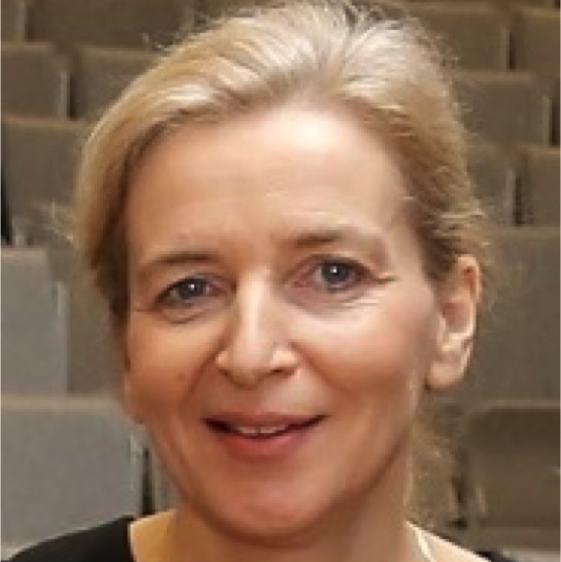
Prof. Ann Swillen
Educational Psychologist
Leuven, Belgium
Personal Statement
Prof. Ann Swillen
I am always been intrigued by the wide variability in 22q11 DS, and I wanted to understand how body and mind interact in this condition with the ultimate goal to provide better care for these children, adolescents and adults and their families.
Bio
Prof. Ann Swillen
Educational Psychologist
Professor of Human Genetics and Rehabilitation Sciences, University Hospital of Leuven
22q11.2 Society, Founding Trustee, Founding Treasurer and Secretary
Leuven, Belgium
Professor Ann Swillen is a Professor at the Departments of Human Genetics and Rehabilitation Sciences at KU Leuven (University of Leuven, Belgium). She is the Head of the Laboratory for Behaviour and Neurodevelopment at the University.
As an clinical educational psychologist, Professor Swillen works with children, adolescents and adults who have neurodevelopmental disorders such as intellectual disability (ID), developmental delay (DD) and autism spectrum disorders (ASD). Her group has more than 25 years of experience and expertise in the clinical follow-up and research of individuals with Copy Number Variants (CNV’s), including those with 22q11.2 deletions and duplications. Since 1994, she coordinates the multidisciplinary clinic and care for persons with 22q11.2 DS at the university hospital (UZ Leuven). She recently developed a psychoeducational tool for families’ www.geneticpuzzle.eu to improve understanding and communication around a CNV in the family.
Professor Swillen has supervised 7 Ph.D. students and over 30 Masters students, and is highly involved in teaching at the KU Leuven. She is also a leader in networks for several rare diseases in Europe and internationally.
For more information about Professor Swillen’s work, please visit her lab’s website.
Professor Swillen received the Angelo DiGeorge Medal in 2016 and the Edelweiss Award in 2020.
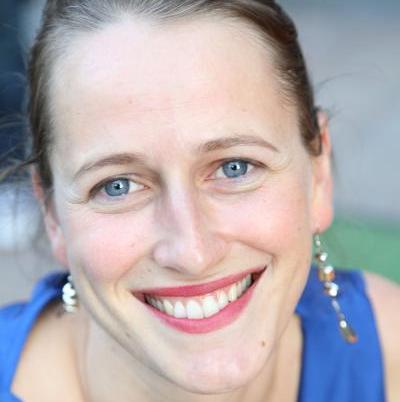
Dr. Marta Unolt
Pediatric Cardiologist
Rome, Italy
Personal Statement
Dr. Marta Unolt
I started working on 22q because I want to understand the causes of congenital heart diseases in order to help better the families of affected children.
Bio
Dr. Marta Unolt
Pediatric Cardiologist
Bambino Gesù Pediatric Hospital
22q11.2 Society, Advisor
Rome, Italy
Doctor Unolt is a pediatric cardiologist who currently works at the Bambino Gesù Pediatric Hospital in Rome, Italy. She completed her Medical Doctor degree and her Residency in Pediatrics at the Sapienza University of Rome, where she collaborated for about 7 years with Prof. Bruno Marino on research about 22q11.2DS and on developing the Program for adolescents and adults with 22q11.2DS, with the help of the Italian Association for Persons with 22q (Aidel22).
During her Residency, in 2016, she spent six months in Philadelphia, where she worked as a researcher with Donna McDonald-McGinn at the 22q & You Center of the Children’s Hospital of Philadelphia.
Dr. Unolt completed also a 2nd level master’s degree in Pediatric Cardiology at the Sapienza University of Rome. Currently she is working towards her PhD in Innovative Biomedical Technologies in Clinical Medicine at the Sapienza University of Rome.
During her studies Dr. Unolt participated in many meetings and conferences. She started attending International 22q11.2 Meetings in 2014 in Palma di Mallorca. She has continued to participate actively in all the Meetings. She is member of the 22q11.2 Society.
Dr. Unolt is interested in cardiogenetics. She researches about genetic mechanisms of congenital heart diseases. In particular she is interested in congenital heart defects associated with genetic syndromes and in understanding how a genetic syndrome can impact the prognosis of a heart defect.
Publications
Dr. Unolt participated in different national and international studies, focusing her research on 22q11.2DS.
Find the complete list of publication on https://pubmed.ncbi.nlm.nih.gov/?term=unolt%20m
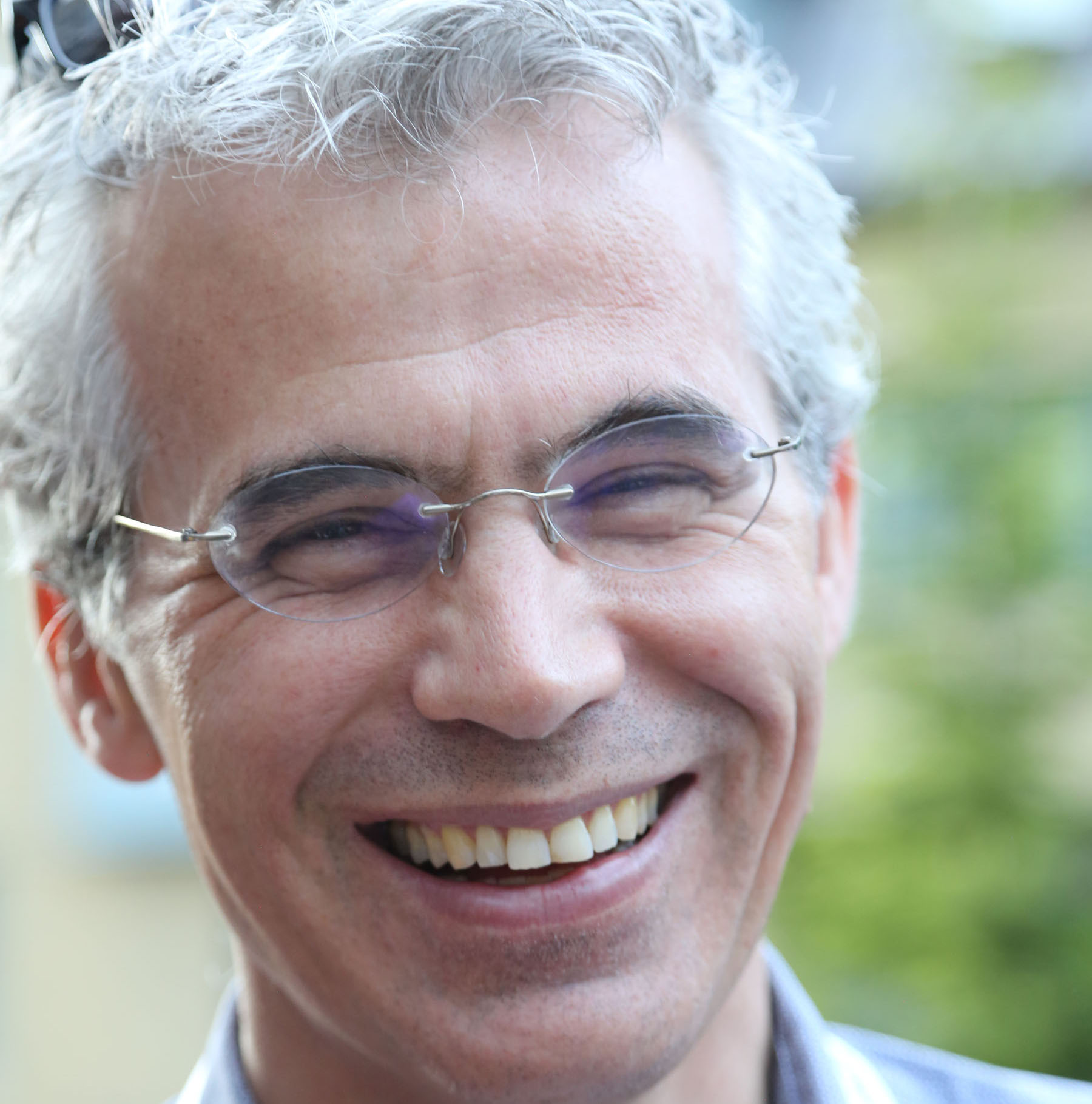
Dr. Jacob Vorstman
Child and Adolescent Psychiatrist
Toronto, Canada
“One of the greatest diseases is to be nobody to anybody.”
(Mother Theresa)
Personal Statement
Dr. Jacob Vorstman
I learned about the 22q11.2 deletion as a beginning resident in 2001. My scientific curiosity was at once captivated by the strong psychiatric vulnerability brought about by such small genetic variant. It’s a privilege to meet these children or youth and their families. The unique personality and history of each individual, as well as the courage and resilience that appear to be common threads in this community, are truly inspiring.
Bio
Dr. Jacob Vorstman
Child and Adolescent Psychiatrist, The Hospital for Sick Children
Associate Professor of Psychiatry, The Hospital for Sick Children & The University of Toronto
22q11.2 Society, Advisor
Toronto, Canada
Jacob Vorstman MD, PhD is an associate professor of psychiatry at The Hospital for Sick Children and the University of Toronto, in Toronto, Canada. He is originally from the Netherlands, where he trained in both child and adolescent psychiatry (clinic and research) and molecular genetics (research). Between 2004 and 2006 and from April 2016 to June 2017 he also worked in the Children’s Hospital of Philadelphia, United States of America.
Starting in 2001, his research aims to elucidate genotype-phenotype relations in autism and schizophrenia. An important part of his research focuses on the psychiatric and genetic aspects of the 22q11.2 deletion.
In September 2017 he moved to Toronto where he, together with his team at the Autism Research Unit, initiated a multidisciplinary clinic called DAGSY (Developmental Assessment of Genetically Susceptible Youth), designated for children with genetic risk variants associated with a psychiatric or neurodevelopmental outcomes. As of January 2020, he holds the SickKids Psychiatry Associates Chair in Developmental Psychopathology.
Donate Today
At the International 22q11.2 Foundation we help families that need important resources and information to meet the needs of loved ones with 22q.
